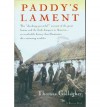Currently reading
Paddy's Lament, Ireland 1846-1847: Prelude to Hatred
Pivot: The Only Move That Matters Is Your Next One
When in French: Love in a Second Language
Beyond the Job Description: How Managers and Employees Can Navigate the True Demands of the Job
Vision and Art: The Biology of Seeing
Achieving Your Potential As A Photographer: A Creative Companion and Workbook
Reclaiming Conversation: The Power of Talk in a Digital Age
Picture Perfect Practice: A Self-Training Guide to Mastering the Challenges of Taking World-Class Photographs (Voices That Matter)
Man's Search for Meaning
Terms of Service: Social Media and the Price of Constant Connection
Seeing Trees: Discover the Secret Lives of Everyday Trees
 Stunning -- the whole method of close observation described by the author and the absolutely stunning photographs by Robert Llewelyn. One that I will buy and read again. It's already launched me into a lot of other books about trees and even deeper tree-watching than I was doing already. And from the conclusion:Because finding answers for most of the questions our tree investigations has generated has been so much fun, I'd also like to comment here on this kind of learning in general. It seems too obvious to say that the most enjoyable and meaningful learning occurs when questions precede answers. But if that is so obvious, why do we give answers (especially to children) before students have questions? "There is a revealing line in a novel by Haruki Marakami (Kafka on the Shore), when the narrator describes a school outing during WWII. .. the narrator describes this as a typical school outing: "everyone carried canteens and lunches with them. We had nothing in particular we were planning to study, we were just going to go up into the hills to gather mushrooms and edible wild plants." In my state, a school outing without a list of educational objectives ("the student will learn. . .") is almost illegal. ...p.230"The second observation I'll end with comes from Diane Ackerman's book The Zookeeper's Wife. Ackerman is describing the importance of a particular insect collection when she writes, " What is being collected is not the bugs themselves but the deep attention of the collector. That is also a rarity, a sort of gallery that ripples through the mind and whose real holdings are the perpetuation of wonder in the maelstrom of social and personal distractions. 'Collection' is a good word for what happens, because one becomes collected for a spell, gathering up one's curiosity the way rainwater collects." Observing trees is like that -- something that requires you to collect yourself and train your attention on something capable of perpetuating wonder." p. 231
Stunning -- the whole method of close observation described by the author and the absolutely stunning photographs by Robert Llewelyn. One that I will buy and read again. It's already launched me into a lot of other books about trees and even deeper tree-watching than I was doing already. And from the conclusion:Because finding answers for most of the questions our tree investigations has generated has been so much fun, I'd also like to comment here on this kind of learning in general. It seems too obvious to say that the most enjoyable and meaningful learning occurs when questions precede answers. But if that is so obvious, why do we give answers (especially to children) before students have questions? "There is a revealing line in a novel by Haruki Marakami (Kafka on the Shore), when the narrator describes a school outing during WWII. .. the narrator describes this as a typical school outing: "everyone carried canteens and lunches with them. We had nothing in particular we were planning to study, we were just going to go up into the hills to gather mushrooms and edible wild plants." In my state, a school outing without a list of educational objectives ("the student will learn. . .") is almost illegal. ...p.230"The second observation I'll end with comes from Diane Ackerman's book The Zookeeper's Wife. Ackerman is describing the importance of a particular insect collection when she writes, " What is being collected is not the bugs themselves but the deep attention of the collector. That is also a rarity, a sort of gallery that ripples through the mind and whose real holdings are the perpetuation of wonder in the maelstrom of social and personal distractions. 'Collection' is a good word for what happens, because one becomes collected for a spell, gathering up one's curiosity the way rainwater collects." Observing trees is like that -- something that requires you to collect yourself and train your attention on something capable of perpetuating wonder." p. 231













